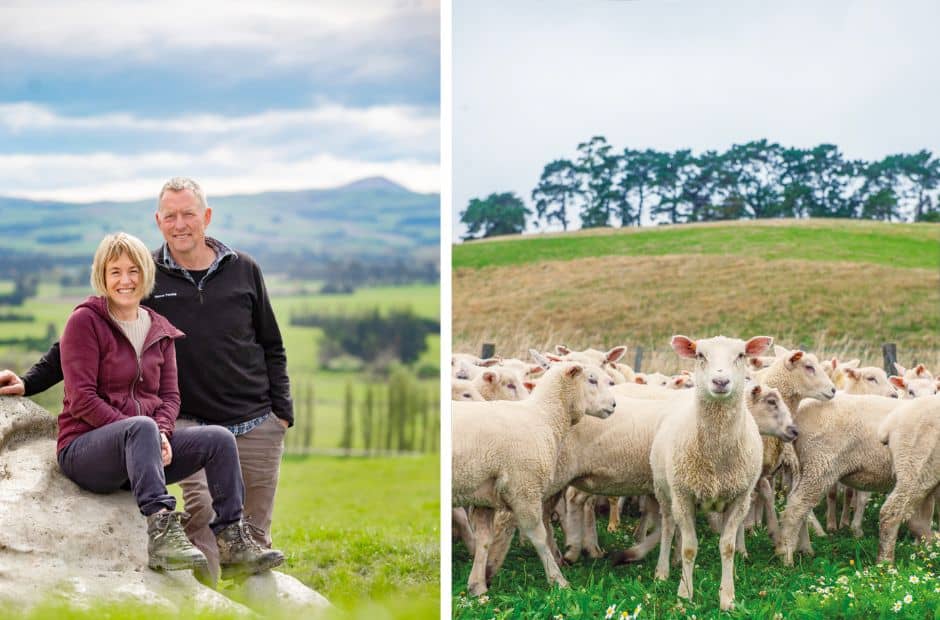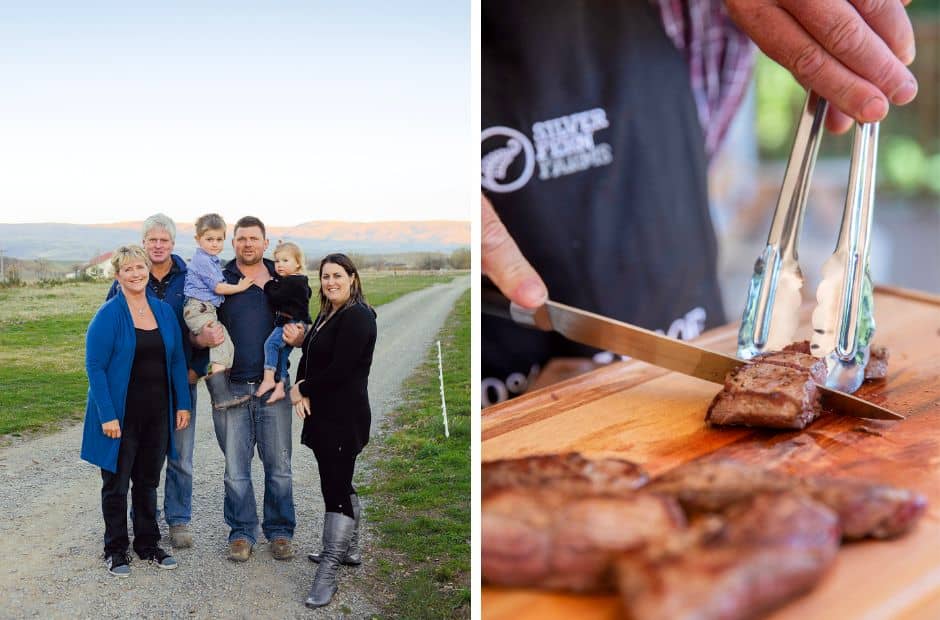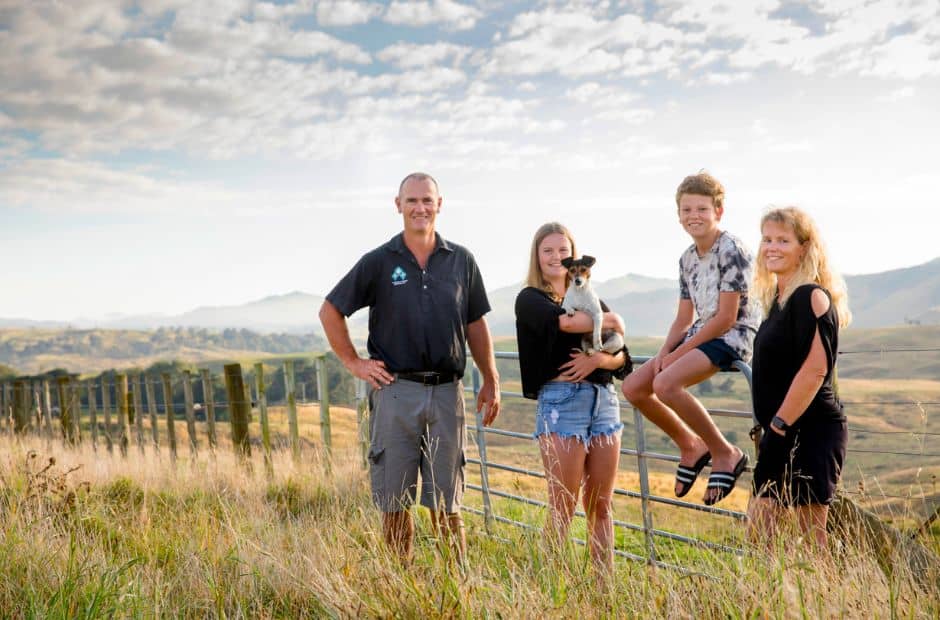According to Māori legend, the silver fern once lived in the sea. It was asked to come and live in the forest to guide the Māori people, where hunters and warriors used the fern’s silver underside to find their way home as fronds were bent over to catch the moonlight and shine a path through the forest. For 75 years, Silver Fern Farms have been shining a path since 1948, a pivotal year of rapid change across New Zealand.
New Zealand’s population had not yet hit two million, that didn’t happen until 1952.
Back in 1948, George VI was on the throne and Peter Fraser was the Labour Prime Minister. It was also the year the company Primary Producers Co-operative Society, trading as PPCS, was registered – today better known as Silver Fern Farms.
Seventy-five years ago we saw the abolition of tea, sugar and meat rationing, introduced during WWII. “Rationing had been a burden,” said Mr E. R. Blanchard, President of the Canterbury Master Butchers Association being interviewed by the Christchurch Press at the time. “It will be a big relief to trade, and it was likely that the sale of offal meats, such as tripe, and manufactured goods, such as sausages and saveloys would drop, and the demand for steaks and chops will increase.”
Another change was happening on the food front within Kiwi homes. Towards the end of the Depression of the 1930s, a time when low household incomes went hand in hand with aggravated health and dental problems, The New Zealand Women’s Food Value League was formed. The League’s principal objectives were to improve food standards and to educate the public in “the grammar of nutrition”.
By 1948, having pioneered nutritional work in New Zealand, the League disbanded and the educational void left was picked up by the Department of Health to carry out public instruction in nutrition that also saw Plunket nurses educate mums about the importance of a balanced diet and nutrition.
Now consumers increasingly want to eat only the very best when they choose meat as an option, the perception of quality is changing, evolving to be less about just ‘me’ and my tastebuds, to be more about the entire planet and the environment, respect for the land and animals, caring from start to finish, and a passion for the very best ingredients and the difference that makes.
In New Zealand, the climate, clean air and plentiful pure water fuel the year-round growth of lush, green pastures. As diligent guardians of the land and environment, Silver Fern Farmers are committed to raising animals on this pasture, with the ability to roam and graze freely with little intervention. Allowing the animals to eat and live as they would naturally reduces stress and means better animal welfare.
Silver Fern Farmers’ ability to grow quality, nutritious grass means they produce animals more naturally, the result is high- quality, tasty, tender red meat. A diet of nutrient-rich grass produces natural marbling and gives a fine, delicate texture.

The Highest Standards
Barry and Heather Gray with son Richard and daughter-in-law Juliet farm together at Hakataramea Station in Canterbury, with more than 30,000 stock units including deer, sheep and cattle. “We have very healthy country up here, it’s good for animal health,” says Barry. As Silver Fern Farmers they are required to ‘make the cut’ as their beef is given an Eating Quality (EQ) System® mark that indicates it is of the highest standard for tenderness, juiciness and flavour every time.
Understanding the consumer is at the core of the company’s Plate to Pasture strategy, which was introduced in 2010. As a marketer and producer of food, Silver Fern Farms understand the expectations consumers have for premium quality, natural, grass-fed red meats for a delicious meal experience.
Silver Fern Farmer Fiona Hancox from Kowai Downs, a picturesque Tapanui property, one of three West Otago sheep and beef farms she owns with husband Nelson, has always admired the attention paid to the consumer. “Silver Fern Farms has the correct focus in that we’ve got to be aware of what the consumer wants,” she says. “There’s no sense in us as farmers producing food if the consumer doesn’t want that type of food. I’ve really always liked how proactive Silver Fern Farms have been in marketing and considering the consumer; I think Plate to Pasture is a really good concept.”
Silver Fern Farmers William and Emily Beetham have set themselves high expectations at Brancepeth, one of New Zealand’s oldest stations in Wainuioru, situated 15 minutes’ east of Masterton in the Wairarapa. The 32-room Brancepeth homestead was added to the original structure built in 1856 and is registered with Heritage New Zealand under its highest ranking, Category 1. Although their farm is steeped in history, the Beethams have welcomed a new era in farming, where the focus is on a sense of community, people and partnerships. The attention to detail and focus this young couple have around best practice in farming and building a business is impressive.
Treasuring rural community relationships, they consider all aspects of the environment in all their decision-making. “Yes, we are committed to enhancing the quality of soil, water, flora and fauna, respecting our animals and accepting responsibility for their welfare and recognising their dependency on our actions,” says William. “We have high expectations, and therefore must uphold the highest standards and be open and honest. It is also always about the people.” And this attitude is something all generations of the Beetham family have clearly understood.
Each generation of the Beetham family over the years has learnt to speak Māori, as close relationships with local iwi are a priority. Kiwi feathered cloaks were presented to the subsequent new generation of Beethams at their christenings as a mark of mutual respect.
In 2021 Silver Fern Farms ratified a programme of work to lean in to their bicultural space. Te Ara Huri (a turning pathway) was introduced to the business to enrich understanding and strengthen connect to Te Ao Māori. Silver Fern Farms Te Ara Huri framework is headed up by Kaiarataki Ricky Fife whose responsibility is to implement, advocate and support business initiatives aligned to Te Ara Huri. Recently launched to the organisation under the korowai (cloak) of Cultural Progression, one of the four main pillars of Te Ara Huri is their Te Maunga Teitei (Reaching for the Summit) programme, aimed to support understanding and connection from a bicultural perspective. A series of online foundation learning modules have been released to the business discussing important concepts related to Māori values, Māori society, Te Reo Māori, Treaty of Waitangi as well as what Te Ara Huri and Māori development means to Silver Fern Farms.
Silver Fern Farms is committed to becoming more diverse and inclusive across their organisation through a range of initiatives supporting the growth and development of its people. This, paired with the breadth of Silver Fern Farms’ operational footprint, means they understand their interdependencies within respective communities as well as the importance of genuine partnerships and relationships with mana whenua, hapū and whānau and the importance these partnerships play in the social, cultural and economic licence that enables enduring value for their people, communities and environments.
As a significant regional employer, Silver Fern Farms is actively committed to the development of Māori within their business, wanting to play a part in mentoring young Māori leaders for the future. This is achieved through working proactively with local mana whenua in the regions ensuring Silver Fern Farms understand their views and perspectives, wanting to make a positive contribution to the communities they operate in when it comes to the guardianship of water, land and other natural resources.
On the East Coast of the North Island of Aotearoa New Zealand, lies Whāngārā, a small community north of Gisborne. A place where rolling green hills look across the ocean, where the sun first rises, and where looking after the land is a top priority. Whāngārā Farms is made up of six farm units, with a total land size of 9,000 hectares, growing 100% grass-fed beef and lamb supplied to Silver Fern Farms, and delivered to global consumers under a trusted New Zealand brand. Whāngārā Farms is now owned by a collective of three Māori Incorporations, with around 2,000 joint shareholders, who work as a collective to manage the business in a way that prioritises intergenerational care and value.
The day-to-day running of the farm units by a team of passionate staff is managed by General Manager, Richard Scholefield. “We need to get young people interested in farming, and into the business of farming,” he says. “There are so many opportunities within farming now.” Those core values of nurturing the land and business and developing it for future generations, are key to the way that Scholefield and his team go about their work. “Sustainability is the key. Being in a Māori incorporation, the land can’t be sold, so we’re here for future generations. Decisions that we make today are going to affect future generations, and I think we have to be really mindful of it. Being environmentally sustainable goes hand in hand with everything that we do on the farm, our policies and procedures, our decisions and our systems,” Scholefield says, referring to a project undertaken with Silver Fern Farms.
“We went through our properties and did a land environmental plan to the highest standard that we could,” he explains. “It has fully changed the land-use capability of our farm, all the different soil types, and then given a priority list of the ways to manage it in the most environmentally sound way.”

Technological Innovation
FarmIQ is another innovation employed by Silver Fern Farms to help farmers record and trace information about their stock, enabling them to make more informed decisions about how they farm and match what they produce to what consumers want to eat Silver Fern Farms works closely with farmers, collecting and sharing information, key insights and feedback from consumers before trialling new techniques on the farm.
In line with the New Zealand Farm Assurance Programme, stock are treated with the utmost care and respect at every step where all cattle and deer are individually tagged on the farm under the National Animal Identification and Tracing system and tracked using radio-frequency identification (RFID) technology. The company’s production processes are rigorously tested and audited to ensure they meet the highest standards set here in New Zealand by the Ministry of Primary Industries and internationally such as The United States Department of Agriculture (USDA) and British Retail Consortium (BRC).
In addition, integrated farm planning is also an integral part of the recently implemented New Zealand Farm Assurance Plus Programme, which aims to protect and enhance all natural resources, including soil and water, improve biodiversity, create better and more sustainable farming businesses and incorporate a higher level of socially responsible and ethical practices.
Nicola Johnston, General Manager of Growth for Silver Fern Farms says, “Alongside the Farm Assurance Plus Programme, we are also encouraging our farmers to embrace technologies that will help better capture on-farm data and enhance measurement of farming outcomes and impacts. All this will ensure we can deliver a truly authentic, evidence-based promise to consumers, that’s trust you can trace back.”

Better Quality Guaranteed
The Silver Fern Farms Eating Quality (EQ) System® is a science-backed grading process that allows the company to guarantee the consumer a better eating experience, with 7 criteria to contribute to the eating quality of red meat. It stands behind the Master Graders’ promise of beef that consistently meets the highest standards of taste, tenderness and juiciness. Cuts are hand- selected by an Accredited Master Grader and then aged with care for at least 21 days.
Over the years Silver Fern Farms has narrowed down what attributes make up their elite product and over two years were part of an extensive study in which more than 95,000 samples of beef were tasted by 13,700 people in New Zealand and the US. The collaborative study with, Texas Tech University in the USA, Silver Fern Farms and Otago University in New Zealand was used to determine the factors affecting eating quality. It involves a technical process done by hand by Silver Fern Farms Eating Quality (EQ) System® accredited master graders, who are re-tested every eight weeks to ensure they’re all grading the meat correctly, as per the study’s findings. Silver Fern Farmers like the Grays and Hancoxes work with their trusted Silver Fern Farms drafter, who provides them with information allowing them to raise better-tasting beef. For example, they must keep the pH of the animals low, which means ensuring the animals are stress-free. They do take measures to keep the animals calm and it shows out in the field, where the stock are curious rather than nervous.
Silver Fern Farms introduced a new 100% Standard Lamb Programme, which means certified farms have the ability to supply stock, where lamb is 100% grass-fed, antibiotic-free, has no added hormones, GMO-free and doesn’t use feedlots. This may be taken for granted in NZ but on the world stage, this is something of a rarity.
Silver Fern Farms has in recent years made a transformative shift in how they think about sustainability that is fundamental to delivering enduring value for their people, communities and farmers. As a company, they view sustainability as a journey, not a destination.
“We see the transition to a low-carbon economy as an opportunity, rather than a risk,” says Johnston. “We trust this lens will ensure our business and our farmers’ businesses will remain resilient and relevant for the next 75 years.”

A Sustainable Future
Silver Fern Farms is New Zealand’s first meat company to develop a sustainability programme and to have a verified carbon footprint with an industry-leading emissions reduction programme. Kate Beddoe, Chief Sustainability & Risk Officer, says as a company, “We are reshaping our business to be future fit. The company has recently renewed their purpose to ‘Creating Goodness From the Farms the World Needs’ with a focus on enduring value”.
Silver Fern Farms has also joined the International Science Based Targets initiative (SBTi) and has achieved Toitū enviromark diamond certification, the highest New Zealand-based environmental certification. They are also a founding member of the Centre for Climate Action Joint Venture, which is all about putting real tools into the hands of farmers to reduce methane emissions.
Net Carbon Zero is a unique programme with activity occurring across the business, including on farms through insetting the carbon sequestration (the capturing, removal and storage of carbon dioxide CO2 from the earth’s atmosphere), and in market delivering an independently certified, USDA-approved and trusted net carbon zero meat product to consumers. The key to this methodology is insetting, ensuring that the carbon produced by the product and its journey to the consumer is absorbed by the local environment. New Zealand has a uniquely biodiverse farming environment, with on-farm vegetation including regenerating native bush, woodlot forests, shelter belts, summer shade and winter animal shelter, and erosion and riparian planting.
The company launched its first net carbon zero-certified beef in the US last year and is looking to expand the program to other markets and products in the future, representing the future direction of the company. “We are not outsourcing our emissions – rather we are recognising and incentivising our farmers for their efforts to create farm environments that are better able to capture carbon, increase biodiversity and support nature-positive food production,” says Silver Fern Farms Chief Executive Simon Limmer.
“In New Zealand, we have a deep connection to nature, and caring for the environment is part of who we are. With our Net Carbon Zero range we want to show we can produce great-tasting red meat in a way that is better for the planet.”
Consumers can expect even more innovation from the company in the future, using every part of the animal from nose to tail responsibly, so the brand will broaden the focus beyond red meat, generating a number of new products to add to their portfolio. From offals to pet food ingredients, collagen to pharmaceuticals, tallow to edible oils, the company intends to find new opportunities to reach consumers with new solutions and create additional value by adopting circular thinking to transform waste to value.
For 75 years Silver Fern Farms have had a unique grass-based farming system here in New Zealand, it is something that the world wants and will increasingly value into the future. From the delicious and nutritious options that the company produce, to the way they farm them, ethically and sustainably, Silver Fern Farms are passionate about supporting farmers to continue to lead the way in nature-positive food production, creating goodness from the farms the world needs.
For more information, visit silverfernfarms.com
MiNDFOOD Promotion







